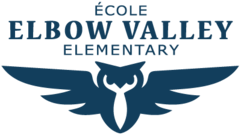French Immersion
Early French Immersion Program - Kindergarten or Grade One Entry Point
First developed in Canada in 1965, the French Immersion program is based on decades of research into its effectiveness both in teaching a second language and in achieving the outcomes of the provincial education curriculum.
Early French Immersion is designed for non-Francophones and is an effective way for students to become functionally fluent in French while achieving all of the learning outcomes of the regular programs of study.
The Early French Immersion Program provides students with the opportunity to acquire fluency in speaking, reading, writing, listening and communicating in French by the end of Grade 12.
- Begins in Kindergarten OR Grade 1 and is intended to continue through Grade 12.
- Provides the best access and the greatest length of exposure to French to the most diverse range of students.
- No entry requirements: parents make the decision to enrol their children.
- Based on research that young children learn languages more easily than older learners. A young child’s vocal structures are more flexible than an adult’s, making the development of an authentic accent easier. Also, young children are more tolerant of ambiguity and do not feel as socially awkward when they find themselves in situations they do not understand.
- With very few exceptions, suitable for any child. Researchers have found that early immersion students with difficulties—learning disabilities, cognitive disabilities, behavioural problems—will do as well academically as they would in a regular English program provided, they receive the same assistance as they would in the English program (Note: École Elbow Valley Elementary School has a French speaking teacher and an assistant as part of the Learning Support team).
- Initially concentrates on French aural/oral language development to give students a sufficient understanding of French to learn to read and write in French and learn subject area content in French.
- It is a program in which French is the language of instruction, beginning in Kindergarten or Grade 1 and continuing to Grade 3 when English is introduced.
- Reading and writing are first taught in French, but students quickly transfer those skills to English beginning in Grade 3. The program includes a strong English language component in Grades 3-12. Research shows that by Grade 6, the literacy skills of French Immersion students meet or exceed those of their peers in the regular English program.
What are the benefits of learning an additional language?
- Learning French as an additional language offers students significant linguistic, academic and cognitive benefits.
- It opens doors to knowledge, communication, culture and travel, and gives students an edge in the global job market.
- It increases a student’s feelings of self-esteem and pride in knowing another language, enhances problem solving abilities, and improves literacy and numeracy skills that transfer across English and French
How can I support my child if I don’t speak French?
- French Immersion is designed for students whose first language is not French, so you don't need any special skills. Your child's teacher is highly trained to teach French using research-informed strategies.
- Language skills are integrated and transferable. For that reason, talk, listen, read and write with your child in your home language and these will set a strong foundation for acquiring French in school.
- Help your child broaden their vocabulary in their first language.
- Have your child read to you in the target language and have them tell you what it means
- These documents are provided by Alberta Education:
- Supports can also be found on the Canadian Parents For French website.
